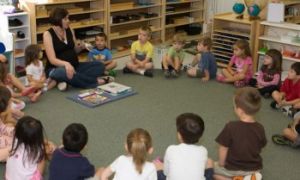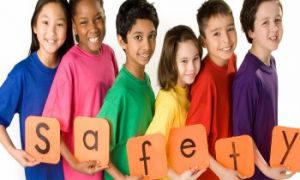

On Thursday 21st July, Dr Mary Hall will be presenting a free webinar on Key Fundamentals Of Supervision: Practical Strategies For Keeping Children Safe.
The Healing Foundation’s Stolen Generations Resource Kit for Educators and Children has been created to educate young people about the Stolen Generations. It makes it easy for the community to start the conversation and inform discussions using facts, real examples and stories.
Writing observations for babies and young children enables us to observe the countless opportunities for growth and development that take place. The following article provides information on Writing Observations For Babies, What To Observe, Sample Observation For A Baby, Methods For Documenting and more.
The Early Years Learning Framework outlines Intentional Teaching as one of the major practice guidelines to promote children’s learning. Intentional teaching involves actively planning and acting with specific goals or outcomes for children’s learning in mind. The following provides information on Intentional Teaching Definition, Intentional Teaching Strategies, Intentional Teaching Examples and Benefits Of Intentional Teaching.
Active Listening involves lending your undivided attention to someone who is speaking to you. As opposed to passive listening which is merely hearing the speaker without trying to understand what is being said, active listening leads to more effective communication, learning and problem-solving. The article provides information on What Active Listening Is, Active Listening Definition, Active Listening Skills Examples and more.
There may be times when despite giving your best, your service might have to face complaints. However, instead of getting demotivated, it is possible to use complaints as opportunities for critical reflection. The following article provides information on Complaints Management, Positive Approaches To Complaints, Effective Complaints Management systems, Identifying Areas Of Improvement, Effective Documentation and more.
As an Early Childhood Educator, it enables you to acknowledge and embrace conversations around disability and inclusion with children. The following article provides strategies to discuss inclusion and disability with children.
The Early Years Learning Framework identifies that positive attitudes and competencies in literacy and numeracy are important aspects
of communication and are vital for children’s successful learning. The indicators have been developed to support teachers to extend and enrich every preschool child’s numeracy and literacy learning. The following article provides information on What Are The Indicators, the Importance of The Indicators, Learning Processes, Numeracy and Literacy Indicators and more.
If your service is to ensure the best outcomes for children in your care, it is imperative that your educators and other staff work together as a team. One of the most enjoyable ways to foster team motivation is with games. Here are a few fun-filled team-building exercises to try at your next team-building session.
Motivating well-qualified staff to remain at your service is not only important to cut down training costs but also to provide the best outcomes for children. The following article provides strategies on how to retain staff within your early childhood service.
 Here is the list of the EYLF Learning Outcomes that you can use as a guide or reference for your documentation and planning. The EYLF… Read More
Here is the list of the EYLF Learning Outcomes that you can use as a guide or reference for your documentation and planning. The EYLF… Read More
 The EYLF is a guide which consists of Principles, Practices and 5 main Learning Outcomes along with each of their sub outcomes, based on identity,… Read More
The EYLF is a guide which consists of Principles, Practices and 5 main Learning Outcomes along with each of their sub outcomes, based on identity,… Read More
 This is a guide on How to Write a Learning Story. It provides information on What Is A Learning Story, Writing A Learning Story, Sample… Read More
This is a guide on How to Write a Learning Story. It provides information on What Is A Learning Story, Writing A Learning Story, Sample… Read More
 One of the most important types of documentation methods that educators needs to be familiar with are “observations”. Observations are crucial for all early childhood… Read More
One of the most important types of documentation methods that educators needs to be familiar with are “observations”. Observations are crucial for all early childhood… Read More
 To support children achieve learning outcomes from the EYLF Framework, the following list gives educators examples of how to promote children's learning in each individual… Read More
To support children achieve learning outcomes from the EYLF Framework, the following list gives educators examples of how to promote children's learning in each individual… Read More
 Reflective practice is learning from everyday situations and issues and concerns that arise which form part of our daily routine while working in an early… Read More
Reflective practice is learning from everyday situations and issues and concerns that arise which form part of our daily routine while working in an early… Read More
 Within Australia, Programming and Planning is reflected and supported by the Early Years Learning Framework. Educators within early childhood settings, use the EYLF to guide… Read More
Within Australia, Programming and Planning is reflected and supported by the Early Years Learning Framework. Educators within early childhood settings, use the EYLF to guide… Read More
 When observing children, it's important that we use a range of different observation methods from running records, learning stories to photographs and work samples. Using… Read More
When observing children, it's important that we use a range of different observation methods from running records, learning stories to photographs and work samples. Using… Read More
 This is a guide for educators on what to observe under each sub learning outcome from the EYLF Framework, when a child is engaged in… Read More
This is a guide for educators on what to observe under each sub learning outcome from the EYLF Framework, when a child is engaged in… Read More
 The Early Years Learning Framework describes the curriculum as “all the interactions, experiences, activities, routines and events, planned and unplanned, that occur in an environment… Read More
The Early Years Learning Framework describes the curriculum as “all the interactions, experiences, activities, routines and events, planned and unplanned, that occur in an environment… Read More

Circle times go beyond just sharing a book or singing songs. Children get the chance...
See more...
Effective communication is at the heart of every productive workplace but more so in sectors...
See more...
Learning how to keep one’s own self safe and protected is a key aspect of...
See more...© 2009-2025 Aussie Childcare Network Pty Ltd. All Rights Reserved.

